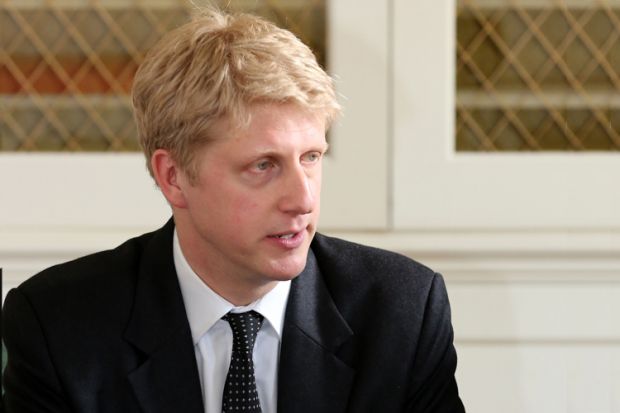Universities and science minister Jo Johnson has announced a “new approach” to make sure that all areas of the country can reach their “full potential” in research.
Speaking in Sheffield, he said that the country’s recovery relied on a “fundamental rebalancing” of the economy.
The plan involves audits to map research and innovation strengths and infrastructure in different parts of the country and an “action plan” to tackle the lack of diversity in science.
Mr Johnson was speaking at the Rolls-Royce Factory of the Future, which is part of the University of Sheffield’s Advanced Manufacturing Research Centre.
He explained that 46 per cent of public investment in research goes into the “golden triangle” of London, Cambridge and Oxford. He stressed that excellence must remain the criterion for funding research.
“But we do have to ensure we recognise that other parts of the country have proven research excellence in their universities and ensure we fund excellence wherever it is found in order to realise the productivity gains that we have seen in the golden triangle,” he said.
“To achieve this we need a new approach – one that promotes and protects our reputation for world-class science, and also drives growth and raises productivity for the whole of the UK,” he added.
The first part of One Nation Science is to take a “more thoughtful approach to place”, which will involve creating series of “open and transparent” audits that map strengths in science and innovation across the country.
“These deep dives will provide a new way to identify and build on areas of greatest potential in every region…They will help local areas to identify emerging scientific strengths” he explained.
The audits will also give government “the tools to recognise and reward excellent research proposals that reflect local strengths and leverage local funds”, Mr Johnson added.
The second part of the new approach will look at the people working in science. He said that research council diversity data shows that for the most part women are underrepresented in grant applications when compared with their proportion in the population of researchers.
“We now have three years of research council grant application and peer review data that analyses success rates by diversity. I have asked the research councils to give me an action plan to address this by December,” he said.
Mr Johnson commended universities for the recent spate of women appointed to vice-chancellorships, but added that there was still work to be done.
“These appointments mean that the number of women leading universities will increase by about 20 per cent compared with last year, but still represent less than a quarter of university leaders.”
He also announced a £1.6 million grant for the University of Sheffield from the Higher Education Funding Council for England to expand the AMRC’s programme to create degree-level apprenticeships.
Responding to Mr Johnson’s speech, Chuka Umunna, the shadow business secretary, said that last week’s Budget had “very little new to say on science and innovation”.
“Ministers tore up Labour’s long-term funding plan for science, and we’ve seen funding for research eroded and whittled away. Without a strategic approach which underpins certainty, we risk falling behind,” he added.
He said that although teaching should be considered as part of the way universities are assessed, this should not “undermine the vital role of research”.
Register to continue
Why register?
- Registration is free and only takes a moment
- Once registered, you can read 3 articles a month
- Sign up for our newsletter
Subscribe
Or subscribe for unlimited access to:
- Unlimited access to news, views, insights & reviews
- Digital editions
- Digital access to THE’s university and college rankings analysis
Already registered or a current subscriber? Login






